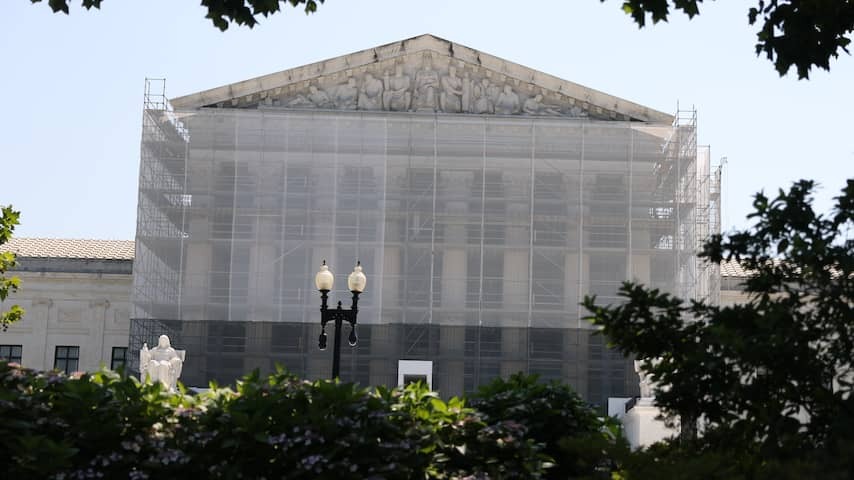 Here’s the extracted and translated content:
Here’s the extracted and translated content:
The US Supreme Court has limited the ability of lower courts to block decisions by President Donald Trump. The ruling is seen as a major victory for the Trump administration.
In recent months, federal judges have temporarily halted several of Trump’s decisions. That pause then applied to the entire United States. One of those decisions was the abolition of automatic birthright citizenship in the US. With this, Trump wants to prevent children of undocumented migrants from automatically becoming American citizens.
The US Supreme Court ruled in response to the birthright issue, but the ruling has broader implications. The Supreme Court rules that lower courts do not have the power to make such decisions and thus nationally block measures. This limits the power of lower courts to block Trump’s policies.
The Supreme Court’s ruling was supported by the six conservative justices. The three liberal justices of the nine-member Supreme Court voted against it.
Trump is pleased with the Supreme Court’s ruling. “Big victory in the US Supreme Court,” he writes on his social medium Truth Social. The president has been regularly frustrated in recent months by judges who, in his view, thwarted his policies with their rulings.
‘Existential threat to the rule of law’
According to liberal Supreme Court Justice Ketanji Brown Jackson, the ruling poses an “existential threat to the rule of law.” She accuses her conservative colleagues of giving Trump the opportunity to violate the constitution. “The lawlessness of the executive branch will triumph as a result,” Jackson states.
The Supreme Court is speaking out against the current way federal judges temporarily halt decisions by the president. This has happened more and more often in recent years, ever since Barack Obama was still president. The decision is now in favor of the Republicans, but in the event of a Democratic election victory, it could also be beneficial for a Democratic president.
Trump’s decisions can still be stopped in other ways by higher courts. But such processes take longer than the decisions of the federal judges, who erected blockades against Trump’s measures within a few weeks.